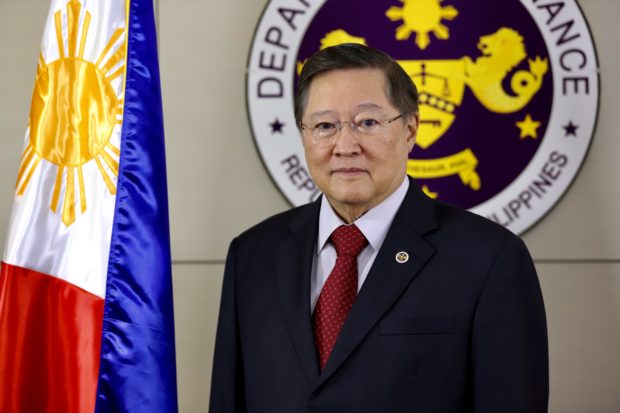Amid the prolonged COVID-19 pandemic, the Philippines has urged the World Bank (WB) to continue co-financing with other multilateral lenders developing countries’ bigger health and socioeconomic response requirements.
“To better respond to the needs of its member-countries, we encourage the World Bank to demonstrate further flexibility in expanding its development financing packages. Developing countries need access to financial resources to boost health- care systems and build resiliency against new virus outbreaks. We also need to support the recovery of the sectors that were severely affected by the contagion,” Finance Secretary Carlos Dominguez III, who serves as the Washington-based lender’s governor for the Philippines, said during the recently concluded World Bank 2021 annual meetings.
“We have to rebuild our economies to adjust to the new challenges brought about by the pandemic. We have to strengthen our infrastructure systems and accelerate the utilization of digital technologies to thrive in the new economy. At the same time, we need to substantially increase investments in green projects to address climate change and ensure a sustainable recovery,” Dominguez said.
Great challenge
“With these great challenges, the World Bank should continue exploring more co-financing arrangements and developing innovative financing mechanisms. Its procurement policies, systems, and processes must adapt to changing conditions. We also expect the bank to exercise full transparency, fairness, and accountability in all of its dealings. With many challenges and uncertainties that lie ahead, we want to see the World Bank taking broad, bold action in helping developing countries plan and execute their return to normalcy and build resilience against future shocks,” Dominguez added.
Dominguez noted that as early as 2017, he urged the World Bank, the Manila-based Asian Development Bank (ADB), and the Beijing-based Asian Infrastructure Investment Bank (AIIB) to collaborate to better finance Asia-Pacific’s development needs.
Dominguez’s proposal bore fruit this year when the World Bank, the ADB, and the AIIB extended a combined $1.2 billion in loans to the Philippines to procure COVID-19 vaccines. “This collaboration was the first in the Asia-Pacific region and an excellent example of how harmonizing and consolidating development assistance among multilateral institutions can yield beneficial results. I urge the multilateral banks to replicate this successful collaboration in other aspects of delivering assistance to countries in the Asia-Pacific region,” he said.
Additional financing
Finance Undersecretary Mark Dennis Joven this month said that additional financing from these same three multilateral lenders was expected to be sealed before this year ends in order to secure ample supply of COVID-19 booster shots for next year.
The Philippines was the World Bank’s top borrower in fiscal year 2021, with a total of $3.07 billion in loans across eight operations during the period July 1, 2020 to June 30, 2021.
The World Bank currently has 13 more financing in its lending pipeline for the Philippines, totaling $2.94 billion.
The latest addition to this pipeline was the proposed $100-million loan for the Philippines’ digital transformation project, which would “accelerate business recovery and improve delivery of government services through digitalization.” INQ


